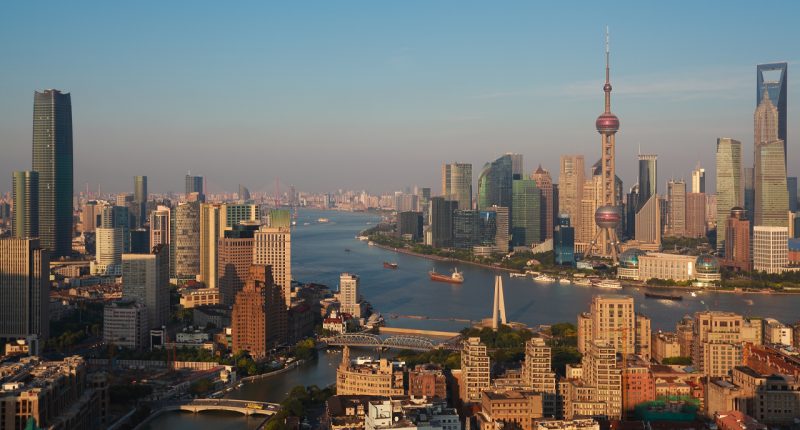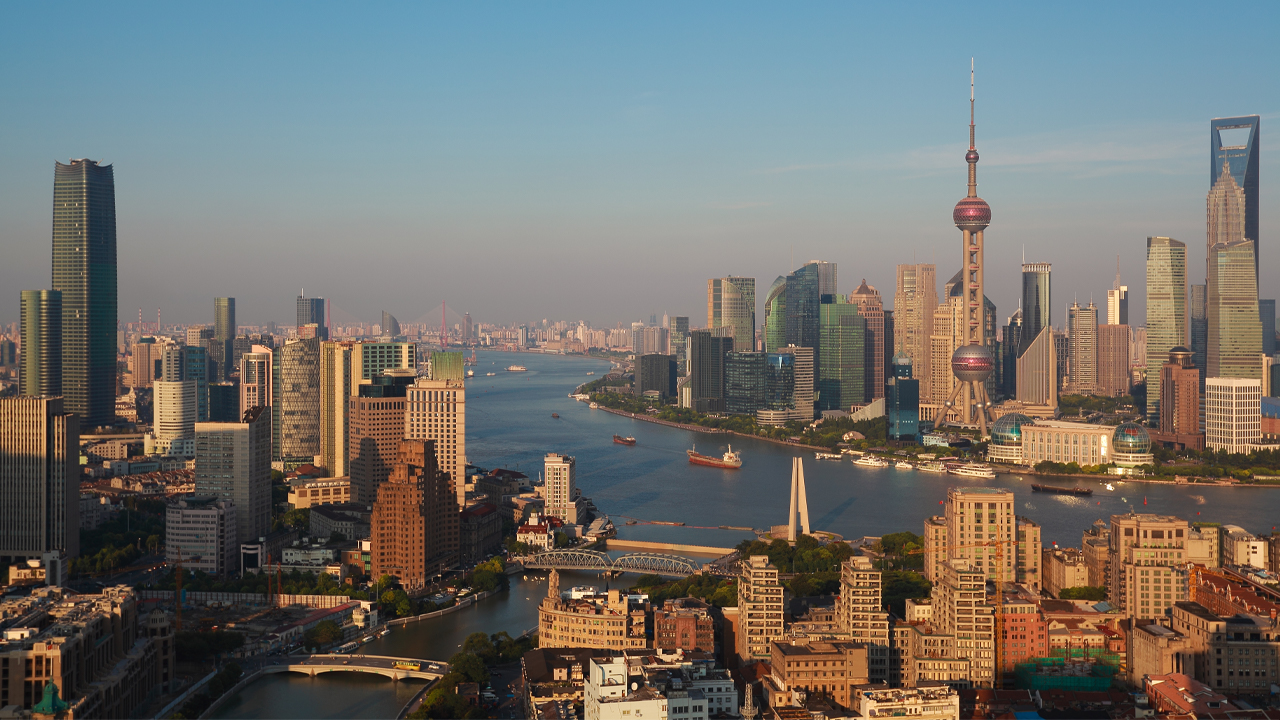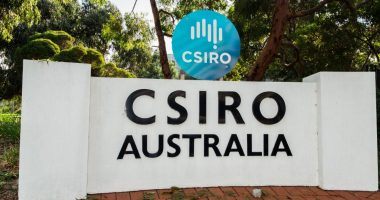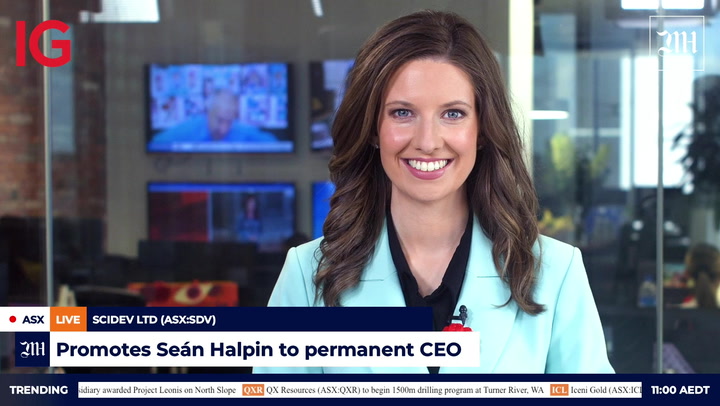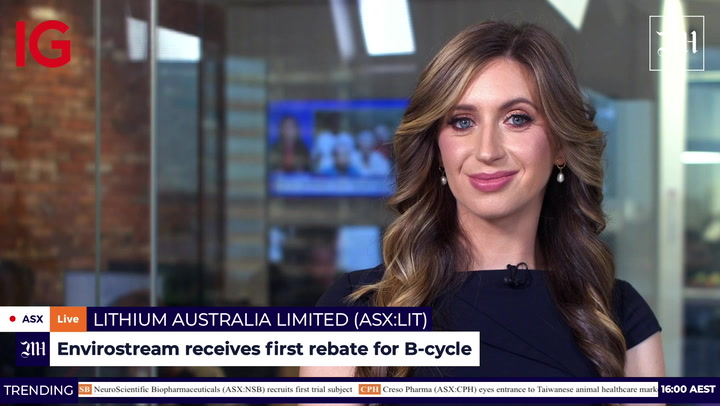- China’s government has grappled for years to not only better the quality of its drinking water but to also evenly distribute it throughout the dense population
- Today, hundreds of groundwater sites in the country are still recognised to be below standard, while the north end of the country misses out on opportunities for what clean water there is
- One ASX listed company, Fluence, is hoping to use its decentralised water treatment technology to make a change
- Today, the company announced its ‘Aspiral’ application will see a new manufacturing facility in China’s Yiyang City — its biggest push in the country yet
China has a water problem
For years, the country has grappled with not only issues with clean drinking water but also how to evenly distribute clean water throughout its dense population.
In 2017, Reuters reported China’s government initiated 8000 different water cleanup initiatives. The program, spearheaded by the environment ministry, initially cost up to $100 billion.
The initiatives revealed over 345 groundwater sites failed to meet government-regulated standards.
Last year, Latham & Watkins reported China’s south makes up for 80 per cent of its water supply. This uneven distribution means 41 per cent of the country’s total population misses out on this water, including the agriculture industry.
What’s the solution?
While there doesn’t seem to be any end to these problems in sight, one ASX listed company offers decentralised wastewater treatment and today found another way to bring its business into the Eastern country.
The company, Fluence, announced today it will be forging a new assembly facility in China’s Yiyang City — holding a population of over four million citizens.
“We are very pleased to further expand our position in China by signing our first [letter of intent] with a local government, thereby strengthening our relationship with the Yiyang City and our partner Kaitian,” CEO Henry Charrabé said.
The letter of intent (LoI) signed with Yiyang City’s Industrial District Managing Committee means this is the biggest push yet for Fluence’s water treatment technology in China.
The assembly facility will be focused on Fluence’s ‘membrane aerated biofilm reactor’, or ‘MABR’, Aspiral technology.
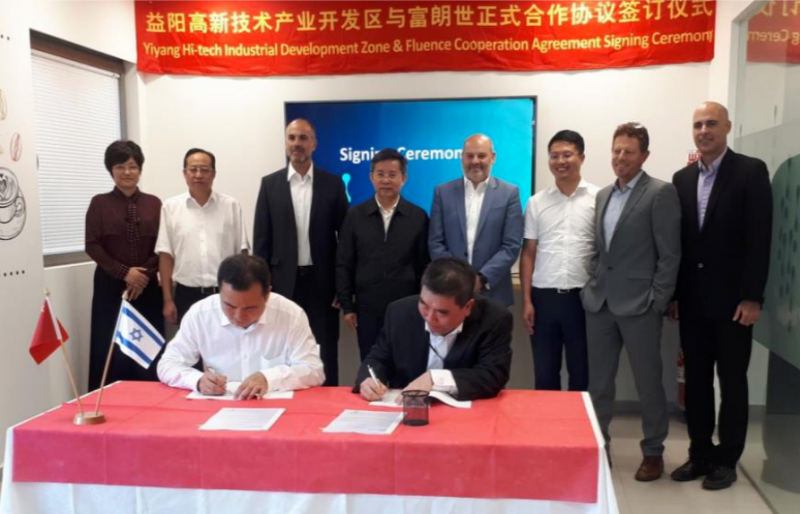
Image courtesy of Fluence ASX media release
MABR has already received backing from local partner Aerospace Kaitian Environmental Technology, a multi-disciplined Chinese manufacturer, through a memorandum of understanding (MoU) deal.
“The combination of the LoI and the MoU provide us with stronger visibility for potential additional large orders for rural wastewater Aspiral systems,” Henry continued.
The Aspiral technology has also been demonstrated in China’s industrial provinces before.
“The establishment of this assembly facility will serve as a gateway to satisfy demand in Southern and Western China as modules are delivered from our Changzhou manufacturing facility and then assembled into our Aspiral products in Yiyang City,”
How does the technology work?
Aspiral is designed for small and medium sizes uses, including towns, villages, residential communities, hotels and commercial complexes.
The Aspiral technology can produce quality recycled water from wastewater through a nutrient removal process. The technology is remotely controlled and monitored and requires minimal maintenance.
Aspira can treat up to 300 cubic metres of wastewater a day.
“Coupled with the potential orders from Kaitian, this represents a very capital efficient way to secure future business and will also help to improve MABR production efficiencies in our Changzhou manufacturing facility,” Henry Charrabé said.
Most recently, Kaitian expressed intent to order enough Aspiral systems to cover a capacity of 40,000 cubic metres of wastewater per day until the end of 2021.
“We look forward to a long and successful relationship in Hunan Province with the local Yiyang government and our partner Kaitian.” he said.
Echoing the possibilities of Fluence’s technology, Yiyang Congress Chairman Qu Hai says the Aspiral application has shown success in treating wastewater in the past for China — boasting low energy use, nutrient removal and easy maintenance.
“The introduction of Fluence and its proprietary MABR technology into Yiyang City will help accelerate further improvement of the local sewage treatment,” he said.
“In the future, we are willing to fully support the deepening of cooperation with Fluence, and provide a replicable model for environmental protection projects in similar areas in Hunan Province and even the whole country.”
Share prices in Fluence have gained 8.54 per cent today in the ASX, bumping shares to 44.5 cents apiece.

